Vaser-Liposuction in Tunis
Search and Compare the Best Clinics and Doctors at the Lowest Prices for Vaser-Liposuction in Tunis
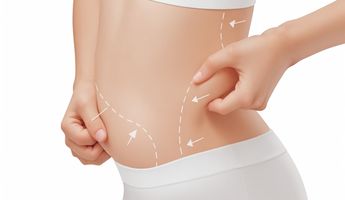
Find the best clinics for Vaser-Liposuction in Tunis
No clinics available
Thailand offers the best prices Worldwide
Price: $ 236

Clinic Apollon, located in Boulevard Mohamed Bouazizi, Tunis, Tunisia offers patients Vaser-Liposuction procedures among its total of 90 available procedures, across 1 different specialties. Currently, there's no pricing information for Vaser-Liposuction procedures at Clinic Apollon, as all prices are available on request only. All procedures and treatments are undertaken by just a small team of specialists, with 2 in total at the Clinic, and they are not accredited by any recognized accreditations institutes
Compare Before & After Photos of _procedure_photos.phpVaser-Liposuction


Front view
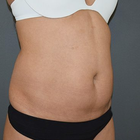

Half-side view
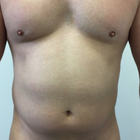
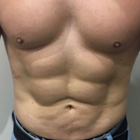
Front view
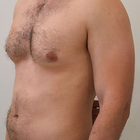
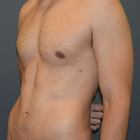
Half-side view
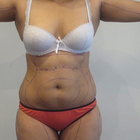

Front view
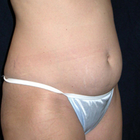
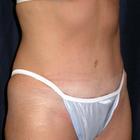
Half-side view
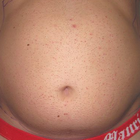
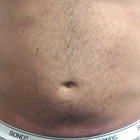
Front view
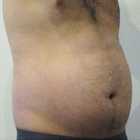
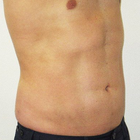
Half-side view
WHY US?
At Medijump, we're making medical easy. You can search, compare, discuss, and book your medical all in one place. We open the door to the best medical providers worldwide, saving you time and energy along the way, and it's all for FREE, no hidden fees, and no price markups guaranteed. So what are you waiting for?

Free

Best Price

Widest Selection

Risk-Free
What you need to know about Vaser-Liposuction in Tunis
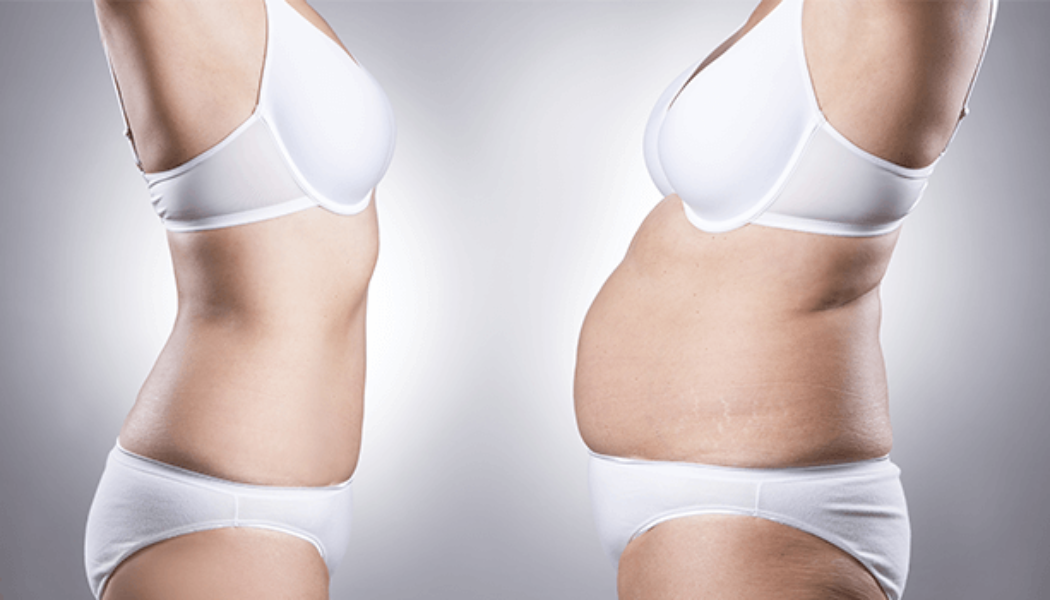
Vaser liposuction, also referred to as Vaser Lipo for short, is a type of cosmetic treatment performed to change the contours and shape of the body by eliminating stubborn fat deposits. Vaser stands for Vibration Amplification of Sound Energy Resonance, which is a specialized ultrasound technology that sends out ultrasonic frequency waves to break down fat cells from desired areas of the patient. Once the fat cells have been broken down, the surgeon can perform the liposuction part of the procedure, which is removing excess fat through a suction process.
Vaser Liposuction has become increasingly popular because the specialized ultrasound technology increases the accuracy of the procedure and minimizes damage to the surrounding tissue, which results in less bruising and pain compared to traditional liposuction. Also, since the fat cells are specifically targeted, the result is much more sculpted and smoother than traditional liposuction. Vaser Liposuction can be performed in many areas of the body, including the abdomen, back, arms, flanks, neck, thighs, calves, ankles, hips, buttocks, and under the chin.
Like other liposuction techniques, it is important to note that Vaser Liposuction is not a weight loss solution. The procedure is intended to contour the body, reduce stubborn excess fat, and reveal muscle tone underneath the fat. You must already be healthy and within your target weight before you consider undergoing this procedure. It
What does a Vaser-Liposuction Procedure Involve?
To begin the procedure, your surgeon injects a saline-anesthetic solution mixture or tumescent solution directly into treatment areas. This solution is used to expand the fat compartment and tightens small blood vessels. It also helps to start the breakdown of the fat cells and protects other tissues. Tiny incisions are then created in the targeted area to insert the Vaser ultrasonic probes. The vibration from the ultrasound will break down the fat. Once the fat is broken down, your surgeon will use a small cannula to remove the fat cells and liquid. Because the fat is broken down with the ultrasound, the fat extraction with the liposuction cannula is easier and less traumatic than in traditional liposuction.
Vaser Liposuction can be carried out under local anesthetic with minimal oral sedation, general anesthetic, or intravenous sedation. If the procedure is performed under local anesthesia, you may feel slight pinching and pressure when the liposuction part is performed.
How Long Should I Stay in Tunis for a Vaser-Liposuction Procedure?
Vaser Liposuction takes around 2 to 5 hours to complete. After the procedure, you may have to stay in the hospital overnight if general anesthesia is used. However, if local anesthesia is used you should be able to leave the hospital on the same day once the effects of the anesthetic wear off.
Since your surgeon will schedule follow-up appointments to monitor your healing and remove your stitches, you may need to stay in Tunis for several days following the surgery. The recommended length of stay in the country is about three to seven days.
What's the Recovery Time for Vaser-Liposuction Procedures in Tunis?
The recovery period of Vaser Liposuction is typically short, but it depends on your general health and treated area. In general, you should be able to return to work and most of your daily activities within two to seven days. You also need to refrain from exercise or other forms of strenuous activities for about 2 weeks. However, if you have gone through a more extensive procedure, you need to prepare for a longer recovery period. The overall recovery time may take up to 24 days following the Vaser Liposuction.
What sort of Aftercare is Required for Vaser-Liposuction Procedures in Tunis?
Your surgeon will give you specific post-operative instruction. You must follow all the instructions closely to help you heal quickly and smoothly, as well as to avoid any possible complications. It is important that you rest as much as possible during the first few days. You may feel some pain and discomfort, but your surgeon will prescribe pain medication to help manage the discomfort.
It is important that you maintain a healthy lifestyle by following a healthy diet and exercising regularly to keep the results of your Vaser Liposuction. While mild weight fluctuations will go unnoticed, significant weight gain will become noticeable. Therefore, have a well-balanced diet, avoid too many sweets, and stay away from fast food.
What's the Success Rate of Vaser-Liposuction Procedures in Tunis?
Approximately 90% of women and men who have gone through Vaser Liposuction reported having achieved their target. The results of the procedure may be seen immediately, but the most significant improvement will appear in 6 to 8 weeks following the procedure. It may take about 6 months to achieve the final results.
Again, your new look will only remain if you take care of yourself. The results will not be permanent if you do not stick to an active and healthy lifestyle. The procedure is designed to give you a little boost and to get rid of persistent fat that you cannot remove easily through a healthy diet and exercise.
While risks and side effects of Vaser Liposuction rarely occur, it is best that you are aware of them. The risks and side effects are:
- The ultrasound device may burn your skin and tissues.
- Skin discolorations.
- Skin from the affected area may be wavy, dimpled, or saggy.
- The formation of scar tissue.
- Swelling.
- The remaining fat cells can expand.
- To further minimize the risks, make sure you choose a skilled and experienced surgeon.
Are there Alternatives to Vaser-Liposuction Procedures in Tunis?
If you do not want to undergo Vaser Liposuction or you are not an ideal candidate for the procedure, you can opt for the nonsurgical alternatives:
- CoolSculpting works by freezing stubborn fat cells in certain areas of the body. The freezing temperature can destroy fat cells permanently. This type of procedure can remove fat cells from certain areas of the body, particularly belly fat, back fat, love handles, arm fat, or a double chin.
- Sculpsure uses a laser beam to heat fat cells until they become irreversibly damaged. This procedure is very quick and requires almost no downtime.
Whilst the information presented here has been accurately sourced and verified by a medical professional for its accuracy, it is still advised to consult with your doctor before pursuing a medical treatment at one of the listed medical providers
No Time?
Tell us what you're looking for and we'll reachout to the top clinics all at once
Enquire Now

Popular Procedures in Tunis
Prices Start From $111

Prices Start From $120

Prices Start From $931

Prices Start From $76

Recommended Medical Centers in Tunis for procedures similar to Vaser-Liposuction

- Interpreter services
- Translation service
- Religious facilities
- Medical records transfer
- Medical travel insurance
- Health insurance coordination
- TV in the room
- Safe in the room
- Phone in the room
- Private rooms for patients available

- Interpreter services
- Translation service
- Religious facilities
- Medical records transfer
- Medical travel insurance
- Health insurance coordination
- TV in the room
- Safe in the room
- Phone in the room
- Private rooms for patients available

- Interpreter services
- Translation service
- Religious facilities
- Medical records transfer
- Medical travel insurance
- Health insurance coordination
- TV in the room
- Safe in the room
- Phone in the room
- Private rooms for patients available

- Interpreter services
- Translation service
- Religious facilities
- Medical records transfer
- Medical travel insurance
- Health insurance coordination
- TV in the room
- Safe in the room
- Phone in the room
- Private rooms for patients available

- Interpreter services
- Translation service
- Religious facilities
- Medical records transfer
- Medical travel insurance
- Health insurance coordination
- TV in the room
- Safe in the room
- Phone in the room
- Private rooms for patients available

- Interpreter services
- Translation service
- Religious facilities
- Medical records transfer
- Medical travel insurance
- Health insurance coordination
- TV in the room
- Safe in the room
- Phone in the room
- Private rooms for patients available
Vaser-Liposuction in and around Tunis
About Tunis
Tunis is the capital and the largest city of Tunisia and is the center of government and administration as well as the center of commercial and cultural activities. It is divided into two parts, the old city known as Medina and the new city or Ville nouvelle. Even though it is located on the southern shores of the Mediterranean Sea, the city does not have many beaches. Still, it has managed to attract millions of tourists in 2018 thanks to its rich history displayed in numerous ancient buildings. These buildings have an enchanting blend of North African and French Architecture that will leave anyone in awe. Many tourists come to see the Roman ruins of Carthage or to stroll around and shop in the Medina.
Tunis is known to have a high standard of healthcare, which attracts an increasing number of medical tourists each year. Many of the medical tourists come from other African countries that have an inferior healthcare system. However, the city’s excellent reputation in cosmetic surgery and dental treatment appeal to many patients from Europe, the Middle East, and Asia. The private medical centers are armed with the best equipment and English speaking staff. The Tunisian Ministry of Health regulates cosmetic and plastic surgeons to ensure that there is a high standard. In addition to exceptional healthcare, Tunis also offer attractive prices for medical treatment and the cost of living.
Popular Areas in Tunis
Although it is the largest city in Tunisia, Tunis can feel like a compact city and can be explored on foot. The city has a number of famous attractions that are always packed with tourists.
- Carthage was founded in the 9th century BC and was once a powerful empire of the Mediterranean as well as home to a wonderful civilization before being destroyed by the Romans in the Third Punic War. It was then to become an important Christian center until the Islamic invaders destroyed it. Today, the ruins have become a UNESCO World Heritage Site that tourists can visit.
- The Medina in Tunis is one of the most remarkable medieval medinas in North Africa. There are over 700 monuments within the area, from mosques to madrassas to historical places. It is easy to get lost in the impressive maze-like alleyways, but tourists are encouraged to admire the Islamic architecture and art or learn more about the city’s history. Tourists can also shop in one of the souqs selling everything from shisha pipes to shoes or enjoy one of the cafes.
- Sidi Bou Saïd is a picturesque cliff-top village with cobbled streets, blue-and-white walls, and glimpses of pristine blue waters. It is probably one of the most beautiful places in Tunisia. The beautiful architecture is a blend of the Ottoman and the Andalusian. It is now a sleepy fishing village perfect for anyone who wants to get away from busy city life. The village has been a gateway for artists, bohemians, and pilgrimage for centuries.
- Bardo Museum is the second-largest museum in Africa and the main attraction of this museum is the ancient Roman mosaics recovered from Carthage. The museum also exhibits Greek statues, artifacts of the region’s Berber, and the accomplishments of the Islamic culture in the country. Other than the exhibitions, the building itself is decorated in impressive historic Islamic decorative arts.
Weather and Climate in Tunis
Tunis has a hot-summer Mediterranean climate meaning the city enjoys warm and sunny weather all year round. The summer can be hot and dry because rain is very rare and the summer usually lasts from June to August and the average temperature is around 25 °C but can get as high as 40 °C. July and August are the high tourist season, especially at the beach resorts. The city begins to get rain in autumn, often accompanied by a short thunderstorm. The winter is the wettest season of the year because it can rain every two or three days and the temperature can drop to 7 °C in the morning and 16 °C in the afternoon. The rainfall decreases in spring, and in March, the temperature ranges between 8 °C to 24 °C and the sunshine usually becomes dominant in May.
Getting Around in Tunis
Tunis-Carthage International Airport is the main airport in Tunisia and the airport connects Tunis with other cities in the country as well as the rest of the world as it serves flights to and from the Middle East, Africa, and major Europeans countries. It is the hub for Tunisair, Tunisair Express, and Nouvelair, but there are not many budget airlines operating flights from the airport. To get to the city center from the airport, tourists can opt for a taxi or bus. The bus is operated by the SNT bus line and departs every 30 minutes. It is very affordable with a single ticket costing less than 1 TND. There is also a more luxurious and expensive bus line known as the TUT bus and the bus departs every 15 minutes. If you want a more private mode of transportation use an airport taxis and they are usually metered.
Tourists have plenty of options to get around Tunis. There is a tram system in the city with inexpensive tickets, usually around .48 TND. However, be aware that it can be packed during the rush hours. Taxis are a good option to get around, the taxis are metered, and the base fare is around .4 TND but can be much more expensive if you hail one off the street.
Tourist Visas in Tunis
Nationals of 97 countries including Australia, China, Singapore, the United States, and Russia can enter and stay in Tunis for up to 90 days without a visa. Other nationalities not listed in the visa exemption agreement are advised to check at their nearest Tunisia embassy or consulate. The country provides an online visa application to simplify the process of obtaining a visa to enter the country.
Additional Information
- Local Currency: Tunisian dinar (TND) is the official currency of Tunisia. 1 USD will get you 2.61 TND.
- Money & Payments: ATMs are widespread in Tunis. Credit Cards, particularly MasterCard and Visa, are accepted in most top-end restaurants, hotels, and shops. Tipping is by no means mandatory but will be greatly appreciated.
- Local Language: Arabic is the official language and French is very common. English is not widely spoken except in tourist areas and hospitals.
- Local Culture and Religion: Most of the population follows Islam, but there are small groups of Christian and Jews.
- Public Holidays: The city celebrates major nationals and Islamic holidays such as Independence Day, Eid Al-Fitr, and Prophet Mohammed’s Birthday.
Popular Searches
- Plastic Surgery in Thailand
- Dental Implants in Thailand
- Hair Transplant in Thailand
- Breast Augmentation Thailand
- Gastric Sleeve in Thailand
- Gender Reassignment Surgery in Thailand
- Laser Hair Removal in Bangkok
- Botox in Bangkok
- Dermatology in Bangkok
- Breast Augmentation in Bangkok
- Coolsculpting in Bangkok
- Veneers in Turkey
- Hair Transplant in Turkey
- Rhinoplasty in Turkey
- Stem Cell Therapy in Mexico
- Rhinoplasty in Mexico
- Liposuction in Mexico
- Coolsculpting in Tijuana
- Rhinoplasty in Korea
- Scar Removal in Korea
- Gastric Sleeve in Turkey
- Bone Marrow Transplant in India
- Invisalign in Malaysia
- Plastic Surgery in the Dominican Republic
- Tummy Tuck in the Dominican Republic
- Plastic and Cosmetic Surgery in Poland
- Rhinoplasty in Poland
- Hair Implant in Poland
- Dental Implants in Poland
- IVF in Turkey
